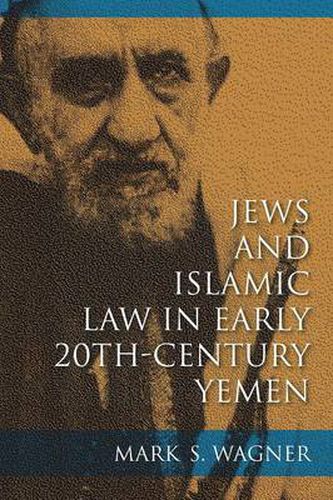Readings Newsletter
Become a Readings Member to make your shopping experience even easier.
Sign in or sign up for free!
You’re not far away from qualifying for FREE standard shipping within Australia
You’ve qualified for FREE standard shipping within Australia
The cart is loading…






This title is printed to order. This book may have been self-published. If so, we cannot guarantee the quality of the content. In the main most books will have gone through the editing process however some may not. We therefore suggest that you be aware of this before ordering this book. If in doubt check either the author or publisher’s details as we are unable to accept any returns unless they are faulty. Please contact us if you have any questions.
In early 20th-century Yemen, a sizable Jewish population was subject to sumptuary laws and social restrictions. Jews regularly came into contact with Islamic courts and Muslim jurists, by choice and by necessity, became embroiled in the most intimate details of their Jewish neighbors’ lives. Mark S. Wagner draws on autobiographical writings to study the careers of three Jewish intermediaries who used their knowledge of Islamic law to manipulate the shari'a for their own benefit and for the good of their community. The result is a fresh perspective on the place of religious minorities in Muslim societies.
$9.00 standard shipping within Australia
FREE standard shipping within Australia for orders over $100.00
Express & International shipping calculated at checkout
This title is printed to order. This book may have been self-published. If so, we cannot guarantee the quality of the content. In the main most books will have gone through the editing process however some may not. We therefore suggest that you be aware of this before ordering this book. If in doubt check either the author or publisher’s details as we are unable to accept any returns unless they are faulty. Please contact us if you have any questions.
In early 20th-century Yemen, a sizable Jewish population was subject to sumptuary laws and social restrictions. Jews regularly came into contact with Islamic courts and Muslim jurists, by choice and by necessity, became embroiled in the most intimate details of their Jewish neighbors’ lives. Mark S. Wagner draws on autobiographical writings to study the careers of three Jewish intermediaries who used their knowledge of Islamic law to manipulate the shari'a for their own benefit and for the good of their community. The result is a fresh perspective on the place of religious minorities in Muslim societies.